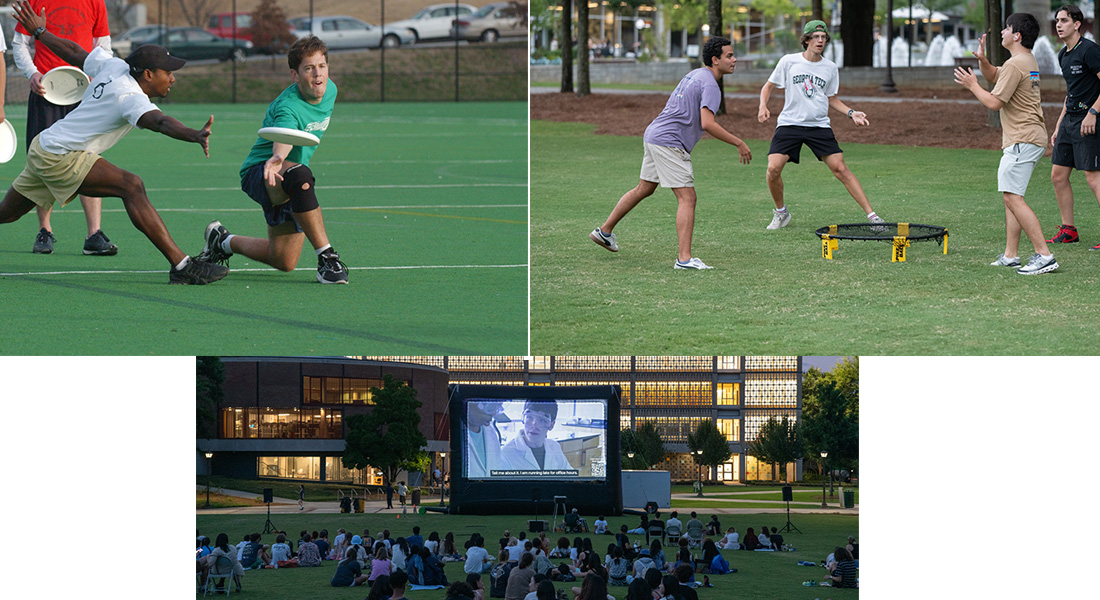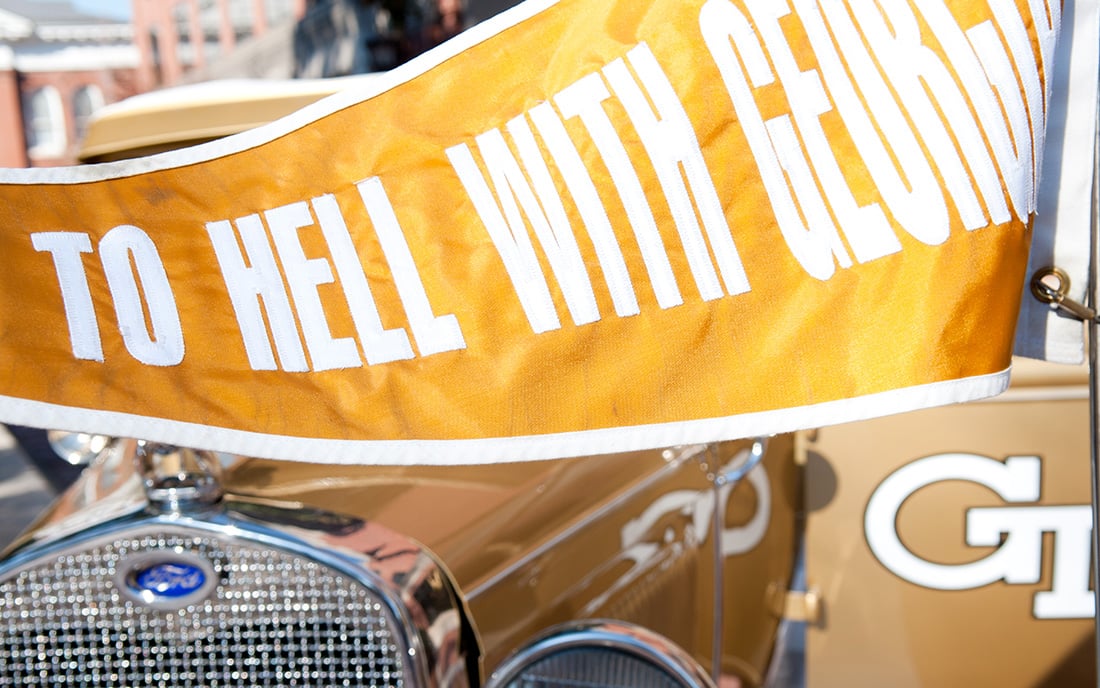Entertainment Through the Decades
By: Jack Purdy, BA 22 | Categories: Alumni Interest, Traditions, Tech History
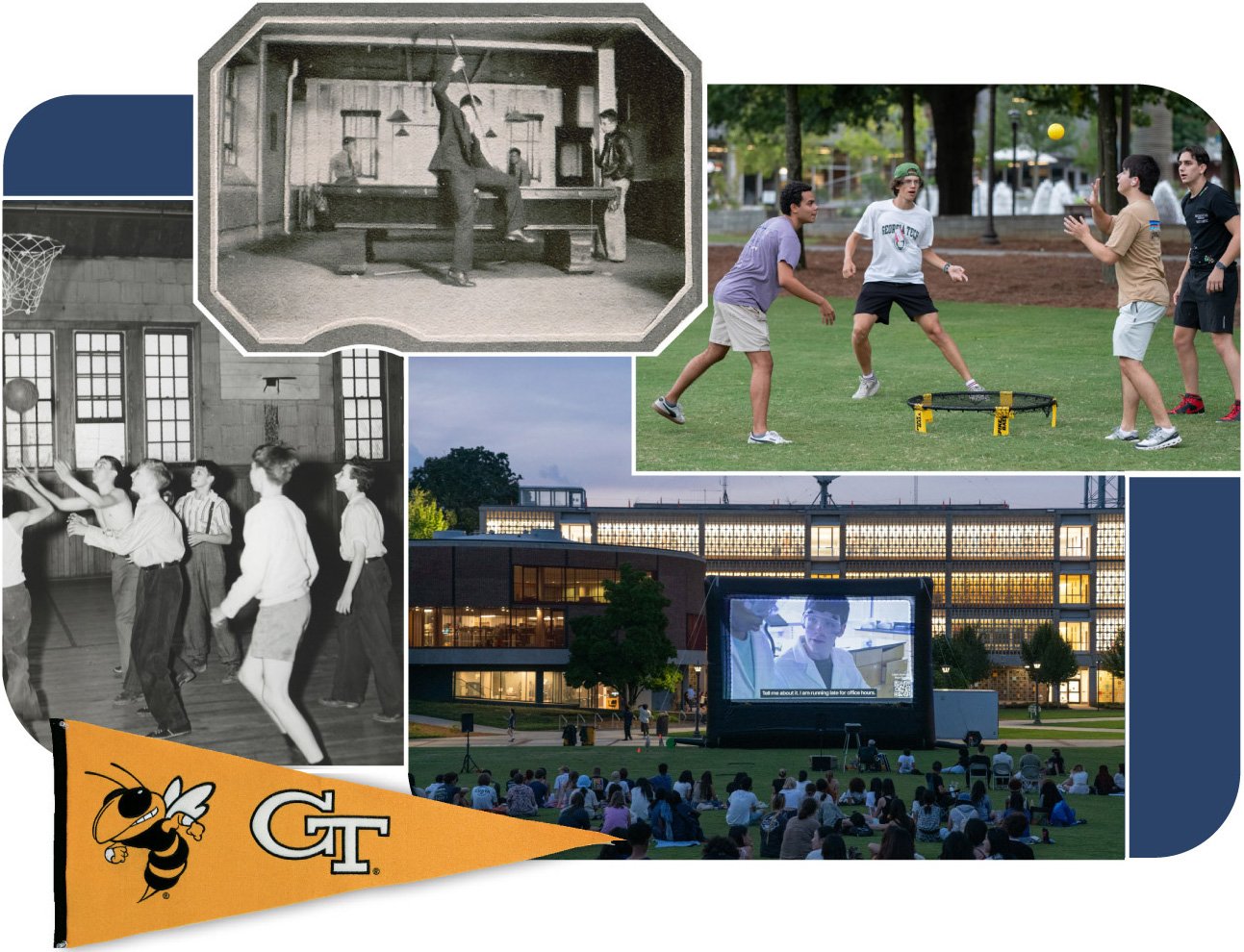
“During the week we didn’t have time to do anything else but study,” said Jay Reynolds, ME 1926, in a Living History interview conducted in 1995.
While the student experience has changed since Reynolds was a Ramblin’ Wreck, Tech students through the decades have always cherished their downtime.
Post World War II, that often consisted of intramural sports, Greek events, football games, Fox Theatre productions, student clubs and socials, Braves games, a lazy night in the dorm, date nights, and more recently, a TV show to binge-watch.
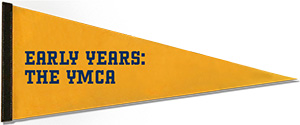
Before Tech had an official student center, the YMCA building on North Avenue was a common spot to gather. Between 1912 and 1915, the building became a focal point of campus life, hosting everything from the offices of the Technique and the student yearbook to a barber shop, a lecture hall, and a space for religious and social gatherings. In fact, by 1915, according to Engineering the New South, Bible studies classes at the YMCA drew over 350 Tech students, nearly half of the undergraduate student body at the time.
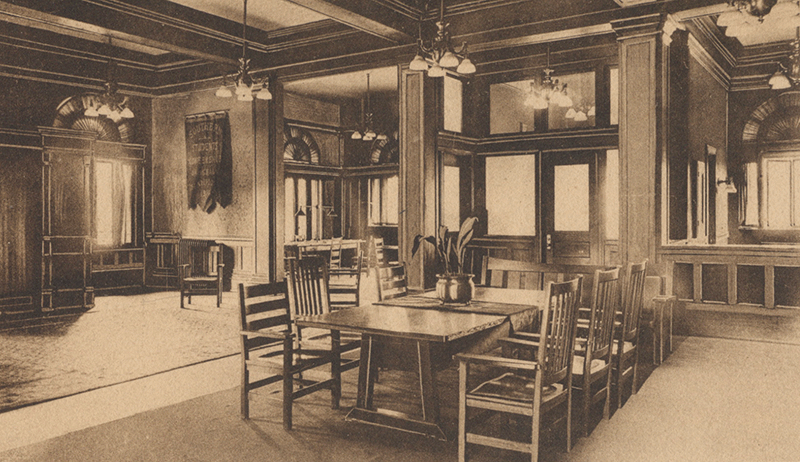 By the 1930s, the YMCA was also serving as a matchmaker. “That’s how [students] attracted young ladies, they attended the Tech Bible classes,” Rayford Kytle, Jr., ChE 1936, said in a Living History interview conducted in 1996.
By the 1930s, the YMCA was also serving as a matchmaker. “That’s how [students] attracted young ladies, they attended the Tech Bible classes,” Rayford Kytle, Jr., ChE 1936, said in a Living History interview conducted in 1996.In 1979, when the building was rededicated as the L.W. “Chip” Robert, Jr. Alumni House, it was noted in the dedication program that “at one time, the building housed every student organization on campus.” Glee Club, the oldest student organization on campus, practiced in its auditorium. The first DramaTech productions were held at the YMCA. Dances occurred on Fridays. Tech’s Camera Club had a darkroom in the basement. The ping-pong and pool tables were always in use. The Marching Band even practiced in the basement while the concrete stands of Grant Field were being built.
Outside of the YMCA, ballroom dances became so popular in 1912 that in December, school leaders had to limit the number of dances that each student organization could organize and required they end by midnight. Still, the Cotillion Club was allowed five dances while other clubs and fraternities held one per year.

While the YMCA was a hub for those who weren’t in Greek life, “fraternities held unquestioned control over Student Government, the Technique, the Ramblin’ Reck Club, and nearly all aspects of Tech ‘traditions’ and extracurricular life,” according to Engineering the New South.
By 1966, the Blueprint, Tech’s student yearbook, declared fraternities the main source of entertainment for students. Intramural football games between the fraternity houses drew sizeable crowds.
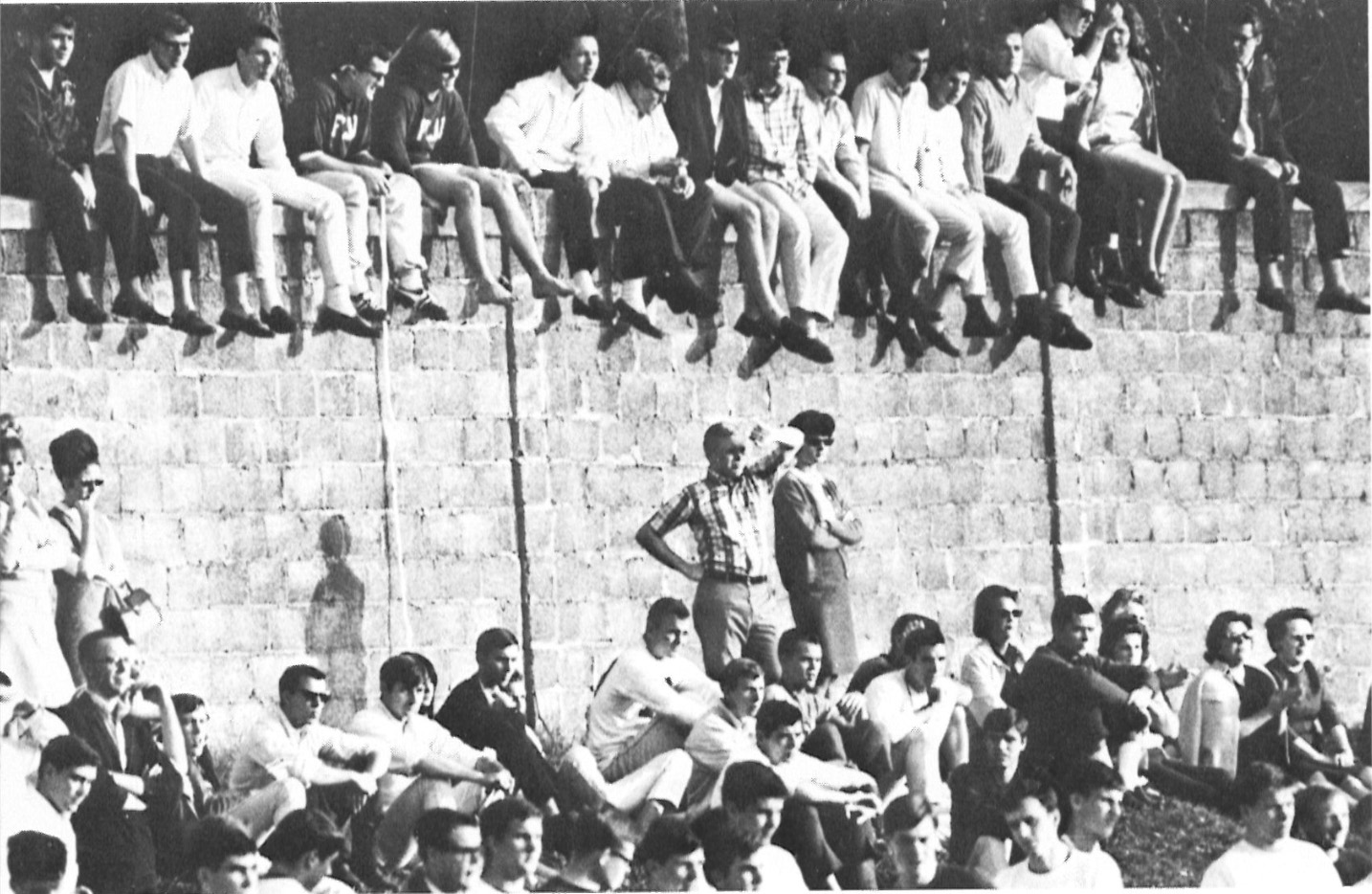 Georgia Tech student crowds watch an intramural football game in the early 1960s.
Georgia Tech student crowds watch an intramural football game in the early 1960s.

In 1975, Tommy Klemis, Cls 71, took over Junior’s Grill at the corner of Techwood Drive and North Avenue and later in the Bradley Building under Tech Tower. Klemis’ 36-year run as co-owner turned him into a beloved campus figure and Junior’s into a legendary campus haunt.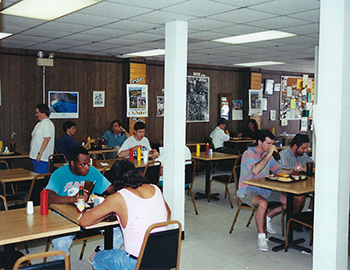 Ivey Laminack, Phys 79, says, “I remember one day Tom and I were talking, and he said, ‘Strange thing is, I never thought this would be, but Junior’s is turning into a social spot. Girls will come in and read a book. Guys come sit beside them and make small talk. It’s turned into a social institution.’”
Ivey Laminack, Phys 79, says, “I remember one day Tom and I were talking, and he said, ‘Strange thing is, I never thought this would be, but Junior’s is turning into a social spot. Girls will come in and read a book. Guys come sit beside them and make small talk. It’s turned into a social institution.’”
Now if pizza—not chicken tenders—was your goal, Laminack says you walked down North Avenue to M.J. Pippin for a Chicago-style deep-dish. “That was where I learned to love pizza. You ordered it and it would literally take 45 minutes for them to bake it,” he recalls.

From the outfits on the pages of the 1980s Blueprint, Georgia Tech wasn’t saved from the ’80s fashion scene. For Jonathan Elmore, Arch 90, Grumpy’s, a bar near campus, was a favorite. He especially liked their “Bladder Busters” challenge.
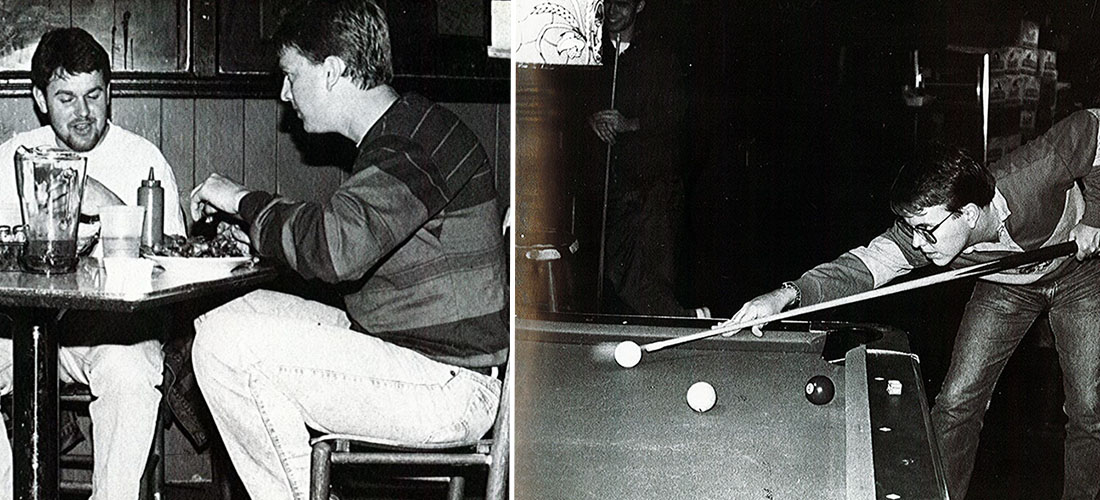
“They would form a line out front, and it was always some football player at the door and then another football player or two at the bathroom door. You’d line up on the sidewalk, they’d open the door, and you had your money ready. It was like five bucks. Everybody would pile in and they would shut the front door. Basically, everybody drank free with wild abandon until someone had to pee,” says Elmore, who is now Mayor of the City of Avondale Estates.

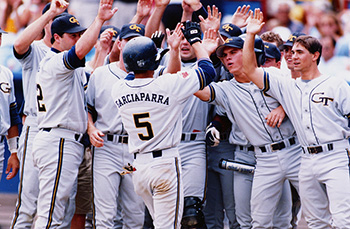 In the 1990s, nothing beat going to an Atlanta Braves game. Atlanta-Fulton County Stadium, their original Atlanta home, was only two miles from campus, and the team was in the midst of its greatest stretch in program history. For a few bucks, a student could sit in the upper deck and take in any number of MVPs and hall-of-famers—or if they were lucky, the 1995 World Series Championship. Between the Braves and Georgia Tech baseball’s run to the 1994 College World Series, the ’90s was a perfect decade for Tech students to spend free time at a baseball game.
In the 1990s, nothing beat going to an Atlanta Braves game. Atlanta-Fulton County Stadium, their original Atlanta home, was only two miles from campus, and the team was in the midst of its greatest stretch in program history. For a few bucks, a student could sit in the upper deck and take in any number of MVPs and hall-of-famers—or if they were lucky, the 1995 World Series Championship. Between the Braves and Georgia Tech baseball’s run to the 1994 College World Series, the ’90s was a perfect decade for Tech students to spend free time at a baseball game.

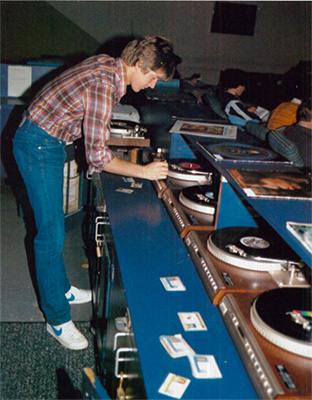 The Music Listening Room, located in Tech’s former Student Center, was beginning to be outdated by the early 2000s as using an mp3 player or laptop became a more popular way to access music. Still, it was a “loud, dark room” where students could go to listen to CDs or vinyl, says Matthew Robertson, CM 08, who worked in the Music Listening Room in the mid-2000s. “It was kind of the opposite of the library,” adds Robertson. It was one of the last places on campus where you could listen to a large library of physical music. Plus, it was an escape from the normal hustle of classes.
The Music Listening Room, located in Tech’s former Student Center, was beginning to be outdated by the early 2000s as using an mp3 player or laptop became a more popular way to access music. Still, it was a “loud, dark room” where students could go to listen to CDs or vinyl, says Matthew Robertson, CM 08, who worked in the Music Listening Room in the mid-2000s. “It was kind of the opposite of the library,” adds Robertson. It was one of the last places on campus where you could listen to a large library of physical music. Plus, it was an escape from the normal hustle of classes.
“There were different music stations that people could come listen to CDs or vinyl,” Robertson says. “People could request albums at the front counter and we would cue them up at one of the headphone listening stations around the room. At this point CDs were our primary format, but we still had turntables and vinyl records from the earlier era.”

As campus grows, so do the ways students spend their free time. Today, Tech boasts 300-plus clubs and organizations for hobbies, cultural interests, arts, and athletics. With over 52,000 undergraduate and graduate students enrolled as of Fall 2024, there is a niche for everyone, from meditation to bridge to—at one point—Lettuce Club.
